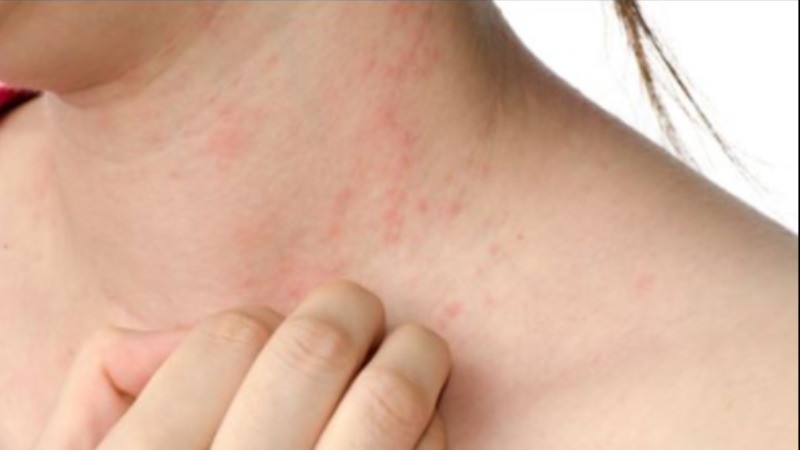
Allergies are a common health issue where the body's immune system overreacts to substances that are typically harmless. This reaction can lead to a variety of symptoms and can occur in response to different triggers. Understanding why allergies occur and recognizing their types can help in managing and mitigating their effects.
Understanding Allergies
An allergy is essentially an immune system response to a substance, known as an allergen, that the body mistakenly identifies as harmful. When an allergen enters the body, the immune system produces antibodies called IgE. These antibodies then trigger the release of chemicals such as histamine from mast cells, leading to allergic symptoms.
Why Do Allergies Occur?
Allergies occur due to a combination of genetic and environmental factors. Here are some key reasons:
Genetic Predisposition: If allergies run in your family, you are more likely to develop them. Genetic factors influence the immune system's tendency to overreact to allergens.
Immune System Overreaction: In individuals with allergies, the immune system identifies harmless substances as threats and mounts an excessive response. This can be due to a combination of genetic and environmental factors.
Environmental Exposure: Prolonged or high levels of exposure to certain allergens can increase the likelihood of developing allergies. For instance, constant exposure to dust or pet dander can trigger allergic reactions in susceptible individuals.
Hygiene Hypothesis: This theory suggests that a lack of exposure to infections and microbes in early childhood can lead to an overactive immune response to allergens. Modern hygiene practices may contribute to the rise in allergic conditions.
Types of Allergies
Understanding the different types of allergies can help in identifying and managing them effectively. Here are the main types:
Drug Allergy:
Description: This occurs when the immune system reacts adversely to a specific medication.
Symptoms: Can include rashes, itching, swelling, or more severe reactions like anaphylaxis.
Examples: Penicillin or sulfa drugs.
Food Allergy:
Description: This is an allergic reaction to certain foods.
Symptoms: Include hives, itching, nausea, vomiting, and, in severe cases, anaphylaxis.
Common Triggers: Nuts, shellfish, dairy, wheat, and soy.
Seasonal Allergy (Hay Fever):
Description: Triggered by airborne allergens such as pollen from trees, grasses, and weeds.
Symptoms: Include sneezing, runny or stuffy nose, itchy eyes, and throat.
Timing: Typically occurs during specific seasons, such as spring or fall.
Contact Dermatitis:
Description: Caused by skin contact with an allergen.
Symptoms: Red, itchy rash, and sometimes blisters.
Common Triggers: Certain fabrics, metals (like nickel), or chemicals in personal care products.
Dust Allergy:
Description: Caused by exposure to dust mites or dust particles.
Symptoms: Include sneezing, nasal congestion, and itchy eyes.
Prevention: Regular cleaning and using dust-mite-proof bedding.
Cosmetic Allergy:
Description: Reaction to chemicals in cosmetic products.
Symptoms: Can include redness, itching, and swelling of the skin.
Common Triggers: Fragrances, preservatives, or colorants in cosmetics.
Managing Allergies
Avoidance: The most effective way to manage allergies is to avoid known triggers. For example, if you have a food allergy, avoiding that food is crucial.
Medication: Antihistamines, decongestants, and corticosteroids can help relieve symptoms. Consult with a healthcare provider for appropriate medications.
Allergy Testing: Allergy testing can help identify specific allergens. This can be done through skin tests or blood tests.
Immunotherapy: For severe allergies, immunotherapy (allergy shots) can be a long-term solution. It involves gradually increasing exposure to allergens to build tolerance.
Lifestyle Changes: Making changes to your environment, such as using air purifiers and keeping windows closed during high pollen seasons, can also help.
By understanding the causes and types of allergies, individuals can take informed steps to manage their condition and improve their quality of life. If you suspect you have allergies or need assistance in managing them, consulting with a healthcare provider is recommended.
Know The Health Benefits of Eating Papaya on an Empty Stomach
54th GST Council Meeting Scheduled for September 9, 2024: Check Key Highlights
World PT Day 2024: Celebrating the Vital Role of Physiotherapists